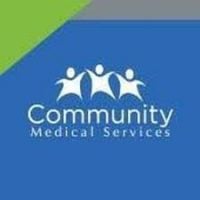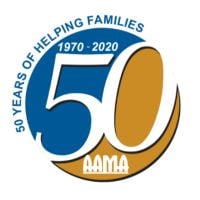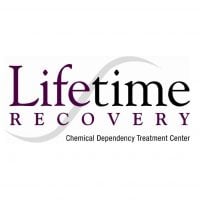Patrician Movement - Claudia Street
Drug Rehab Center in San Antonio, Texas
- Substance Abuse
- Opioid Addiction
- Drug Addiction
- Alcoholism
The Claudia Street Patrician Movement is an Addiction Treatment Facility in San Antonio, TX offering comprehensive care and diverse therapies like yoga and meditation to help individuals recover from addiction and live a healthier lifestyle.
Multiple patients have reported Patrician Movement - Claudia Street as permanently closed.
Research other rehabs in San Antonio, Texas, or get help finding an open facility.
Our experts will find you an alternative facility.
(888) 674-0062 24/7 Free, Confidential, Expert HotlineAbout Patrician Movement - Claudia Street in Texas
Patrician Movement - Claudia Street is a drug treatment facility located in San Antonio, Texas, which specializes in helping individuals struggling with alcohol and substance abuse. This facility offers a variety of services for those looking to overcome addiction and start their journey towards sobriety. With a focus on Alcoholism, Opioid Addiction, Substance Abuse, and Drug Addiction, Patrician Movement - Claudia Street provides a supportive and comprehensive approach to treatment, aiming to address the underlying causes of addiction and provide individuals with the tools and resources they need to achieve lasting recovery.
At Patrician Movement - Claudia Street, individuals can benefit from a range of services and treatment methods tailored to meet their specific needs. The facility offers aftercare support, helping individuals transition from treatment back into their everyday lives and providing ongoing guidance and assistance. Their drug rehab programs are designed to provide individuals with a structured and supportive environment to detoxify, learn coping strategies, and develop skills for relapse prevention. With outpatient levels of care, individuals have the flexibility to attend treatment while still maintaining their daily responsibilities. Patrician Movement - Claudia Street aims to empower individuals to overcome addiction by offering a comprehensive range of services and treatment options.
Genders
Ages
Modality
Additional
Conditions and Issues Treated
Substance abuse is the excessive use of any drug. This includes alcohol, medications, and illegal drugs. Substance abuse is treated with a combination of physical and mental treatments. Patients detox and follow up with therapies that target the underlying cause of the addiction. Substance abuse is a severe problem that can be successfully treated with a variety of therapies. Patrician Movement - Claudia Street treatment uses a combination of therapies along with other resources to overcome substance abuse.
Opioid addiction treatment should be done in a medically supervised drug rehab. While taking opioids, users will typically use other substances to enhance the effects of opioids or to reduce the adverse effects of opioid use. Opioid addiction treatment will include detoxification and drug rehab counseling to help both the user and their loved ones learn how to live a successful sober lifestyle.
Treatments such as methadone, buprenorphine, and naltrexone are three medications that can help treat opioid addiction. These drugs work on the brain’s pleasure center and reduce cravings and the effects of illicit opioids such as heroin. These drugs can be either given orally or by injection. Individual drug rehab counseling sessions can be helpful to discuss any questions or concerns with the drug treatment program. This counseling will also help the user set goals for when they finish drug rehab.
Opioid addiction recovery is a long process. Many of the changes to the brain caused by opioid use cannot be undone, but with time and the proper treatment, a person can return to normal function. After detox, treatment will include drug rehab counseling and entering a halfway house or sober living community. Aftercare is critical to long-term recovery, as it helps the user avoid relapsing and entering back into drug rehab.
Levels of Care Offered
This center offers a variety of custom treatment tailored to individual recovery. Currently available are Aftercare Support, Drug Rehab, Outpatient, with additional therapies available as listed below.
“Outpatient treatment is ideal for those who have a lower intensity addiction. It’s also suitable for those with a supportive environment and those on a tight budget.
Outpatient treatment can be considered the lowest intensity level of addiction treatment. It is ideal for early phase addiction or lower intensity addictions. It may involve weekly sessions instead of daily. Peer group support, 12-step programs, and individual counseling may still be used and anti-addiction medication.
Aftercare support is vital to those who have completed a drug or alcohol treatment program. This support comes in individual and family counseling, treatment of psychiatric and other medical conditions, and medications to reduce cravings. It helps recovering addicts adjust to normal day-to-day activities and can last for a year or longer.
The majority of drug and alcohol addicts who receive aftercare treatment do not relapse. It is estimated that without aftercare, the relapse rate will be between 70 to 90 percent for most people. Aftercare is the final stage in addiction recovery, but it will also help maintain sobriety if relapse does occur.
Therapies & Programs
No single treatment works for all addicts; therefore, the goal of treatment and therapy should be to find what works best for each individual. Some people requiring addiction treatment may only need a few weeks of inpatient care. Others will require long-term residential care. Tolerance and withdrawal levels vary from person to person and thus affect the intensity of the treatment needed.
If an individualized approach to treatment and therapy is not offered, addicts may fail to reap benefits from their efforts. Professionals must customize plans according to their patient’s needs, limitations, and strengths. The goal of all forms of addiction treatment should be for addicts to find healthy ways to cope with their addiction and its underlying causes.
The therapies usually include siblings, children, and parents who are involved in their daily lives. These sessions are vital because they address past issues that may have hampered an addict’s or alcoholic’s recovery and provide support at a crucial time!
One of the most critical aspects of family therapy is helping addicts’ loved ones see their situation in a new light. It’s also one of the most challenging things a family can do when a loved one struggles with addiction or alcoholism.
Group therapy is held in a safe, controlled setting where patients can feel comfortable sharing their struggles and gaining perspective through shared conversations. It takes place in a group rather than one on one to prevent feelings of isolation or being unique in their situation while creating an environment for addicts at Patrician Movement - Claudia Street to develop fellowship, accountability, and support. Group therapy is an important tool in recovery that prevents cravings that prompt a return to active addiction.
Additional Details
Specifics, location, and helpful extra information.
San Antonio, Texas 78210 Phone Number(210) 533-0226 Meta DetailsUpdated November 25, 2023
Staff Verified
Patrician Movement - Claudia Street Patient Reviews
There are no reviews yet. Be the first one to write one.
San Antonio, Texas Addiction Information
Texas is one of the primary hubs for drug smuggling into the country. The border between Texas and Mexico is more than 1,000 miles long. More than 10 million residents use alcohol every year and more than 25% of those are minors. Alcohol and drug use has become so common in Texas that almost 15% of all deaths can be attributed to these substances.
The impact of drug addiction and abuse on the community in San Antonio, Texas, is significant. There were over 1,400 drug overdose deaths in San Antonio in 2016. 9,000 admissions to drug and alcohol treatment programs in the San Antonio area in 2017. Some of the most common include inpatient, outpatient, and residential treatment. There are also several detox facilities available in San Antonio.
Treatment in Nearby Cities
- Port Arthur, TX (275.4 mi.)
- San Marcos, TX (46.4 mi.)
- Grand Prairie, TX (247.1 mi.)
- Hico, TX (180.0 mi.)
- Borger, TX (464.9 mi.)
Centers near Patrician Movement - Claudia Street




The facility name, logo and brand are the property and registered trademarks of Patrician Movement - Claudia Street, and are being used for identification and informational purposes only. Use of these names, logos and brands shall not imply endorsement. RehabNow.org is not affiliated with or sponsored by Patrician Movement - Claudia Street.





